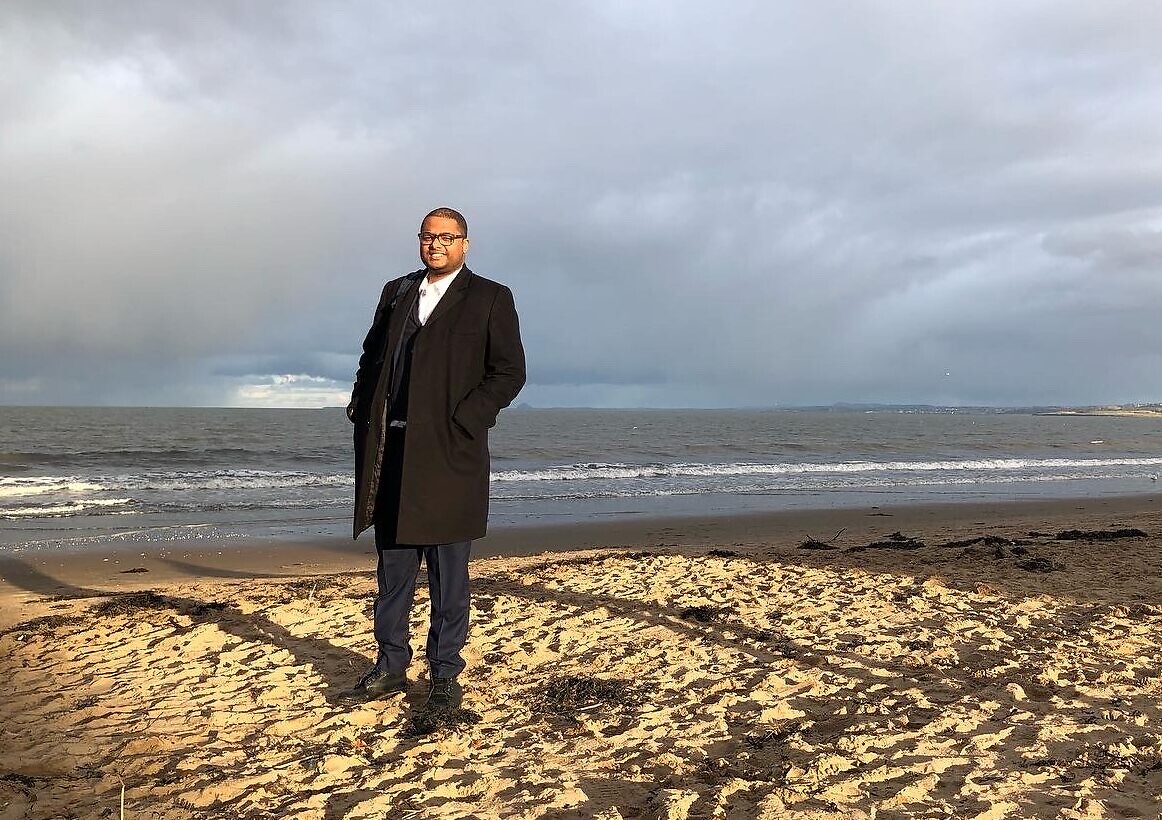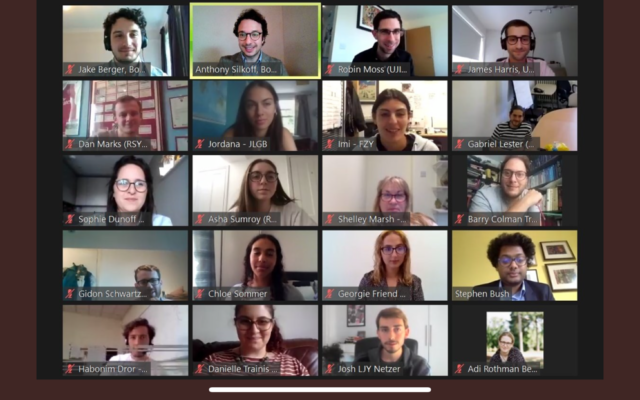Chair of Board’s racial inclusivity inquiry rejects criticism of its remit
Stephen Bush responds to Rabbi Joseph Dweck and others who claim prejudice suffered by Mizrachi, Sephardi and Yemenite Jews has no place in his inquiry.
Richard Ferrer has been editor of Jewish News since 2009. As one of Britain's leading Jewish voices he writes for The Times, Independent, New Statesman and many other titles. Richard previously worked at the Daily Mail, Daily Mirror, edited the Boston Jewish Advocate and created the Channel 4 TV series Jewish Mum Of The Year.
The chair of the Board of Deputies’ Commission on Racial Inclusivity in the Jewish Community has responded to critics, including the senior rabbi of the Sephardi community, who claim Sephardi, Mizrachi and Yemenite Jews should not be included in his inquiry.
Stephen Bush’s reaction came as Jews of Sephardi, Mizrachi and Yemenite descent warmly backed the decision to include their experiences of prejudice within the Jewish community in the investigation, which is due to deliver its findings early next year.
Critics, including Rabbi Joseph Dweck, senior rabbi of the S&P Sephardi Community, told the Jewish Chronicle: “I don’t think it’s appropriate to put them together. I don’t think it’s the same experience, I don’t think it’s the same issue in any way.” His concerns were echoed by Ralph Assor, trustee of Harif, a UK charity representing Jews from North Africa and the Middle East, and Harif’s co-founder Lyn Julius.
However, Bush, who is political editor of the New Statesman, has hit back saying: “We opted to consider the experiences of Mizrachi, Sephardi and Yemenite Jews because firstly, multiple Mizrachi, Sephardi and Yemenite Jews asked us to do so. Secondly, and equally importantly, many black British Jews and Jews of colour are, themselves, Mizrachi, Sephardi or Yemenite.”

He added: “Over the course of this process, we have received countless bits of written and oral testimony from British Jews who are black, Mizrachi or both. I do not believe, frankly, that being told by a security guard that you are ‘not Jewish’ is any less an unhappy experience when it happens to a Mizrachi Jew. I will continue to be led by the evidence and am grateful to our witnesses and participants for their bravery and honesty.”
Echoing Bush’s view, Edwin Shuker, vice-president of the Board of Deputies, said:“We’re proud that the commission responded to the call of many Mizrachi, Sephardi and Yemenite Jews – including myself – to be included in its scope. The testimonies have revealed decades-long experiences that our community has not tackled nor addressed for too long. Stephen is handling each issue with the utmost sensitivity and confidentiality, and giving these experiences of Mizrachi, Sephardi and Yemenite Jews – alongside those of black Jews and Jews of colour – a much needed platform. We look forward to the findings to begin the process of redress and healing.”
After taking evidence since June, the commission – established in the wake of the killing of unarmed black man George Floyd by an policeman in Minneapolis – is now taking opinions from leaders of Jewish organisations, including Jewish News, with a series of recommendations and a timeline for their implementation to be announced in early 2021.
Further Mizrachi, Sephardi and Yemenite Jews were also keen to endorse the commission’s wider parameters. Daisy Abboudi, founder of Tales Of Jewish Sudan, said:“As a Middle Eastern Jew who was born in the UK, I have frequently experienced a distinct lack of education among many mainstream Jewish institutions and organisations. An overwhelmingly Ashkenazi-centric approach to Judaism often left me feeling marginalised and disenfranchised.
“Middle Eastern Jews like my grandparents first began arriving in the UK over 70 years ago and yet our culture is still perceived, more often than not, as either exotic, quaint, or crude. I see this commission as a very important development in challenging these racial, biases. I am glad that the commission has chosen to consult a broad range of voices.”
Iranian Jew Elliott Jebreel said:“Growing up in the UK less than 10 years after my parents left Iran has not always been easy, even in the Jewish community. Jewish schooling was devoid of our history and traditions. I still don’t see our experience reflected as part of the wider UK Jewish community. I hope through my engagement with the commission we can continue to move things in the right direction.”

A spokesperson for Sephardi Voices UK said: “We welcome any action taken by the Board to make British Jewry more inclusive. We understand that the experiences of the multitude of communities that the commission encompasses are not directly comparable, but also recognise threads of commonality in the experiences of individuals from these communities.”
Meanwhile, leading black Jewish voices also welcomed the Board’s wider frame of reference. Jodeci Joseph, whose father is Nigerian and whose Jewish mother is from Hackney, said: “It’s brilliant that the commission is engaging with Mizrachi and Sephardi voices, alongside those of black and Ashkenazi Jews such as myself. Of course some of our experiences are different. But Stephen and the Board should be praised for drawing on such a wide pool of witnesses and putting some really difficult questions to institutions in the Jewish community.”
Chloë Sommer, a mixed-race black Ashkenazi Jew, said: “The commission deals with racial prejudice and cultural discrimination which Sephardim and Mizrachim also face within the Jewish community. When discussing these issues, black Jews, non-black Jews of colour, Mizrachi and Sephardi Jews gather in separate meetings as there must be a focus on the different cultural practices each group has and individual racism they experience.”
Popular Mizrachi musician Daniel Jonas and Yemenite writer Leeor Ohayon, who was initially critical of the commission, have also backed its wider remit.

Thank you for helping to make Jewish News the leading source of news and opinion for the UK Jewish community. Today we're asking for your invaluable help to continue putting our community first in everything we do.
For as little as £5 a month you can help sustain the vital work we do in celebrating and standing up for Jewish life in Britain.
Jewish News holds our community together and keeps us connected. Like a synagogue, it’s where people turn to feel part of something bigger. It also proudly shows the rest of Britain the vibrancy and rich culture of modern Jewish life.
You can make a quick and easy one-off or monthly contribution of £5, £10, £20 or any other sum you’re comfortable with.
100% of your donation will help us continue celebrating our community, in all its dynamic diversity...
Engaging
Being a community platform means so much more than producing a newspaper and website. One of our proudest roles is media partnering with our invaluable charities to amplify the outstanding work they do to help us all.
Celebrating
There’s no shortage of oys in the world but Jewish News takes every opportunity to celebrate the joys too, through projects like Night of Heroes, 40 Under 40 and other compelling countdowns that make the community kvell with pride.
Pioneering
In the first collaboration between media outlets from different faiths, Jewish News worked with British Muslim TV and Church Times to produce a list of young activists leading the way on interfaith understanding.
Campaigning
Royal Mail issued a stamp honouring Holocaust hero Sir Nicholas Winton after a Jewish News campaign attracted more than 100,000 backers. Jewish Newsalso produces special editions of the paper highlighting pressing issues including mental health and Holocaust remembrance.
Easy access
In an age when news is readily accessible, Jewish News provides high-quality content free online and offline, removing any financial barriers to connecting people.
Voice of our community to wider society
The Jewish News team regularly appears on TV, radio and on the pages of the national press to comment on stories about the Jewish community. Easy access to the paper on the streets of London also means Jewish News provides an invaluable window into the community for the country at large.
We hope you agree all this is worth preserving.























